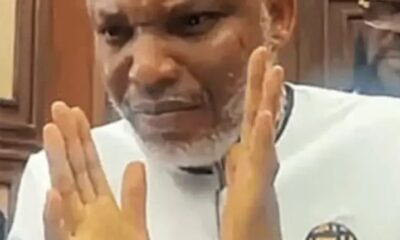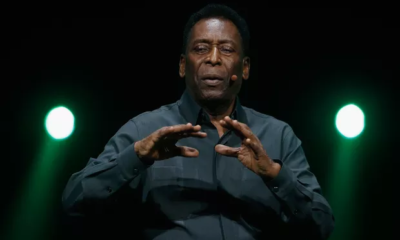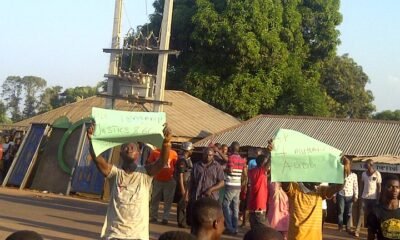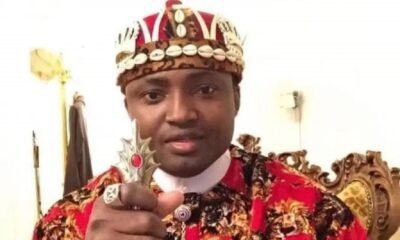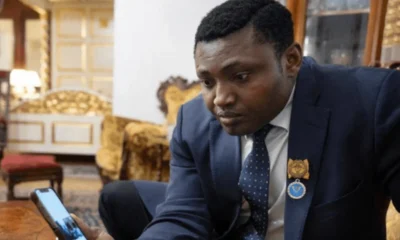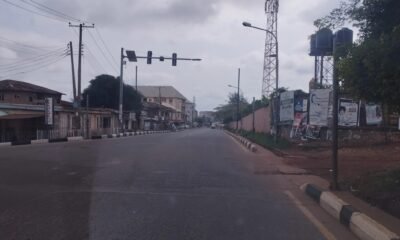News
How Pele, Santos Stopped Nigeria Vs Biafra Bloodiest Civil War In 1969

The late Brazil legend, Pele and his Peixe teammates frequently maintained they were responsible for a ceasefire reached during the Nigerian Biafran horrible civil war.
Throughout his extraordinary career, Pele accomplished many achievements that defy logic and are unlikely to ever be matched. No other player has three World Cup victories to his name. Or 1,000 goals scored at the highest level, however this statistic is the topic of constant debate.
READ ALSO: Brazilian Football Icon, Pele’s Public Funeral Date & Location Announced
However, the Brazilian legend, who passed away on Thursday, attained heights few of his contemporaries, past or present, could even hope to match. But there is one accomplishment in particular that has persisted in popular imagination for for than 50 years and that so many football historians continue to wonder about: Did O Rei really contribute to the end of two warring nations?
This dramatic story takes place in 1969 during one of Santos’ well-known world tours.
During the first half of the decade, Pele, Pepe, Coutinho, and the other Santasticos of the club dominated South American football, defeating European powerhouses Benfica and AC Milan to win two Intercontinental Cups, the Copa Libertadores twice, and five consecutive Brazilian championships.
But starting in 1966, the Peixe’s pursuit of international and even national glory was put on hold.
With Pele as their main draw, the club started to withdraw from the Libertadores in order to travel the globe, starting tours of the United States in 1966, sub-Saharan Africa, Italy, and Germany in 1967, and Argentina in 1968, where they took part in a pentagonal tournament in Boca Juniors’ Bombonera alongside Benfica, River Plate, and Uruguay’s Nacional.
In their quest to maximize the value of their star-studded side, Santos considered almost nothing and nowhere off-limits.
During one 22-day trip to Europe in 1959, 15 games were played in nine different nations. The following year was much more difficult, according to Pele in Andres Campomar’s book Golazo!
I distinctly recall that in 1960, I played 109 times for Santos alone “He declared. “There was no intermission in the season of football.

They had the support of the Brazilian government, which in 1961 passed a law designating Pele as a national treasure and outlawing the sale of the player to a foreign team, leaving him defenseless against Santos’ arduous tours.
So, even though the continent was experiencing terrible upheaval, the Peixe set out for Africa with Pele in tow at the beginning of 1969.
Two years prior, a bloody civil war between Nigeria and a secessionist state called Biafra had erupted as a result of the Igbo people’s desire to secede from the central government, which was presided over by the Hausa-Fulani ethnic minority from the country’s north.
Before Biafra was ultimately conquered and reintegrated into Nigeria, an estimated two million citizens died over two years of ferocious, interethnic conflict and up to 4.5 million were forced from their homes.
Santos arrived in the midst of the conflict, prepared to compete in a match on January 26 in Lagos. The story is that when Pele and company arrived, the guns stopped firing.
During the 48-hour ceasefire between Nigeria and Biafra, Santos and the Super Eagles drew 2-2, with Pele scoring both goals and earning a standing ovation from the home crowd.


Nevertheless, according to some reports, the end of hostilities really took place in Benin City, close to the Biafra border, two weeks later.
According to Santos’ official website, a local holiday was declared and the bridge connecting Benin and Biafra was opened so that both sides of the conflict could see Santos’ 2-1 triumph over Nigeria in front of 25,000 fans.
Gilmar and Coutinho, teammates of Pele, claim that the truce lasted very briefly throughout the game and that they heard hear gunfire from inside the team’s plane as it took off, signaling the start of hostilities once more.
“Having stopped a war was one more point in our favour to show our supremacy,” fellow Peixe legend Lima recalled to Gazeta Esportiva.
“We could have easily turned around and said, ‘War is all around us – why would we enter that mess?’ But we didn’t. We wanted to do it and we said: ‘We are not obliged to play, but we want to and we are going to do this.’”

When Pele arrived in Nigeria in 1969, a three-day ceasefire was brought about despite diplomats and emissaries trying in vain for two years to end the bloodshed in what was then Africa’s deadliest civil war, according to a 2005 Time article on the subject.
But because of the work of Nigerian blogger Oloajo Aiyegbayo, more questions have been raised about the veracity of Pele’s attempts to bring about peace.
Aiyegbayo searched through recent media stories from the time and couldn’t find any indication of a truce that would have applied throughout Santos’ visit in Nigeria.
It’s true that the Benin City bridge was opened, but this was routine procedure on game days and not a move made to let Biafrans into the stadium at a time when tensions were exceptionally high as a result of a number of recent crimes.
READ ALSO: Pele: Five Things You Might Not Know About The Icon
In his autobiography, Pele only mentions that “the Nigerians absolutely made sure the Biafrans wouldn’t invade Lagos while we were there,” indicating that he has conflicting memories of the incident.
But in later interviews, O Rei acknowledged that the story’s more romantic rendition was accurate.
It is surely only normal that the former forward’s memories of specific games and nations might be less than perfect fifty years after Santos’ busy, protracted trips. It’s also feasible that the in question truce dates from a whole different nation and year.
Brazilian athletes also found themselves in a war-torn region of Africa in 1967 when they competed in matches in Gabon’s Libreville and the Democratic Republic of the Congo’s Kinshasa.
Pele visited Gabon again in 2012 and enthralled his audience by recounting his role in ending the bloody civil conflict that had been devastating the nation. They said we couldn’t travel because there was a war going on and that we were crazy, he said.
“We played here [in Libreville] and also in Kinshasa, the father of [Gabon president Ali Bongo] was president then and he said: ‘We have to stop the war because we are all going to watch Pele’. They stopped, we played and we left, it was fantastic. I cannot forget it.’”
We might never fully understand the truth behind Santos’ infamous trips, including whether they were just commercial endeavors or humanitarian missions.
Or perhaps the tales of peacekeeping and ending conflicts are later creations meant to defend what, in the perspective of current observers, seems to have been the appalling abuse of young, gifted football players.
It’s truly up to the reader to determine what to believe, just like with those 1000 goals, the majority of which were unseen and veiled in the obscurity of a time when coverage was at best patchy.

